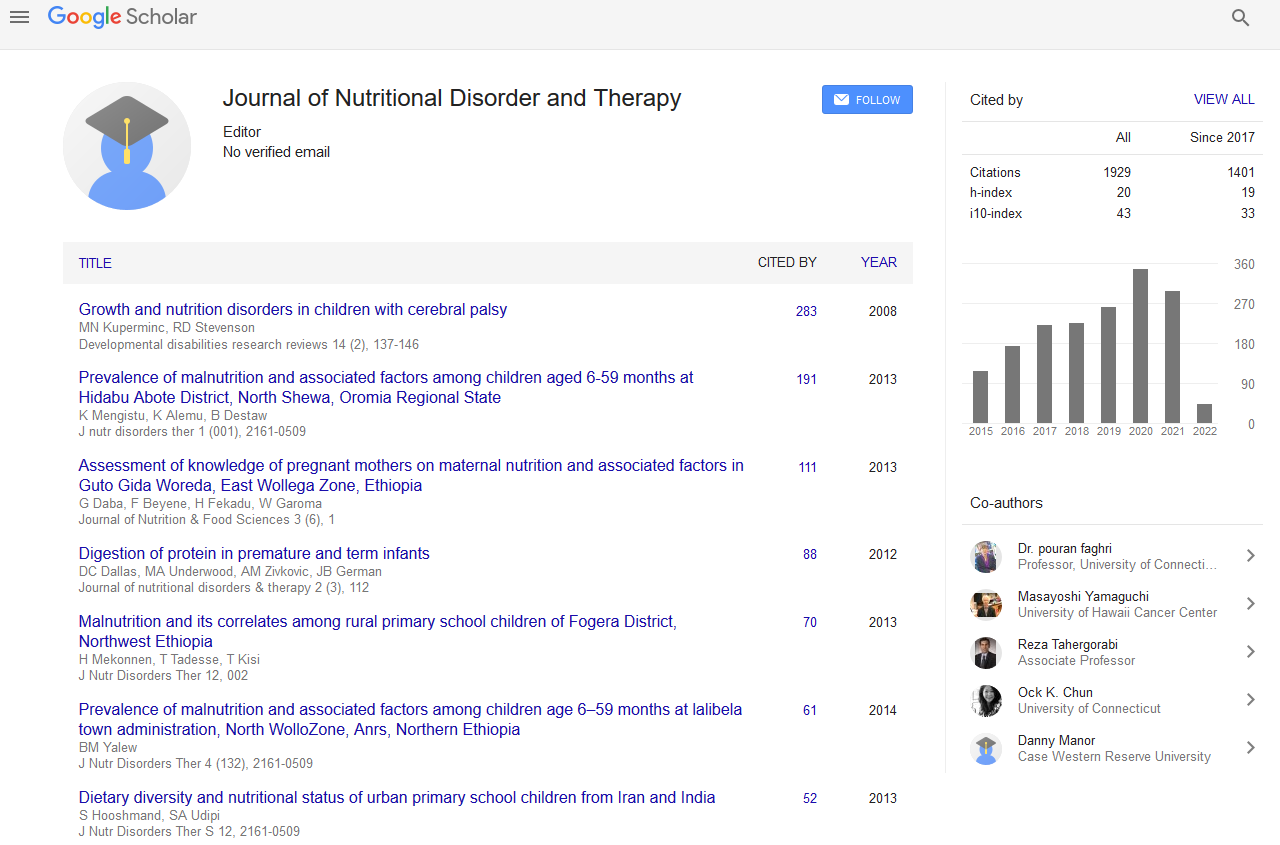Indexed In
- Open J Gate
- Genamics JournalSeek
- Academic Keys
- JournalTOCs
- Ulrich's Periodicals Directory
- RefSeek
- Hamdard University
- EBSCO A-Z
- OCLC- WorldCat
- Publons
- Geneva Foundation for Medical Education and Research
- Euro Pub
Useful Links
Share This Page
Journal Flyer

Open Access Journals
- Agri and Aquaculture
- Biochemistry
- Bioinformatics & Systems Biology
- Business & Management
- Chemistry
- Clinical Sciences
- Engineering
- Food & Nutrition
- General Science
- Genetics & Molecular Biology
- Immunology & Microbiology
- Medical Sciences
- Neuroscience & Psychology
- Nursing & Health Care
- Pharmaceutical Sciences
The effect of Vitamin D and Omega-3 fatty acids supplementation on athletes metabolism
JOINT EVENT: 13th International Congress on Advances in Natural Medicines Nutraceuticals & Neurocognition & 14th International Conference on Clinical Nutrition
July 27-29, 2017 Rome, Italy
Kimia Moiniafshari
Islamic Azad University, Iran
Scientific Tracks Abstracts: J Nutr Disorders Ther
Abstract:
Vitamin D deficiency is common among athletes depending on their skin color and indoor exercise time. Vitamin D is a vital component in biological reactions in human. Scientific articles have shown that vitamin D supplementation has positive effects on athletes�?? performance. Besides that, omega-3 fatty acids (FA) play supportive role on athlete's cardiovascular system. The purpose of this review article was to evaluate the effect of vitamin D and omega-3 FA supplementation on muscles, aerobic capacity, exercise performance and cardio-vascular system in athletes. Among the total 40 articles including entrance criteria, 19 articles including 13 original and 6 review articles were analyzed. Vitamin D plays important roles in synthesis of proteins, hormones, gene expression regulation and muscular performance. Vitamin D deficiency increases the risk of fractures, inflammation, infection and prolonged recovery time. Furthermore, vitamin D increases calcium availability and improves cross bridge cycle and muscular contractions. Decreased level of vitamin D lower than 30 nmol/lit leads to reduced exercise power and increases the risk of infections, Omega-3 FAs improves cardio-vascular function via nitric oxide production and also leads to less total oxygen consumption, lower heart rate and muscular oxygen requirement. Researchers have suggested that omega-3 Fas supplementation increases the level of ecosapanthanoic acid (EPA) in erythrocytes and decreases the peroxidative erythrocyte's protein destruction which results in oxidative balance. Vitamin D and omega-3 FAs supplementation have beneficial effects on athletes�?? performance and doses higher than physiological daily intake may be needed according to increased requirement and deficiency prevalence in athletes.
Biography :
Kimia Moiniafshari has received her BSc degree in Nutrition field from Shahid Beheshti University of Medical Sciences and is MSc student in Sport Nutrition field. She is Nutrition and Autism Researcher and her BSc thesis was about management of nutritional strategies for preventing and controlling autism, and has some publications in this area and now is working on athlete's metabolism and effective supplements for improving their exercise performance.


